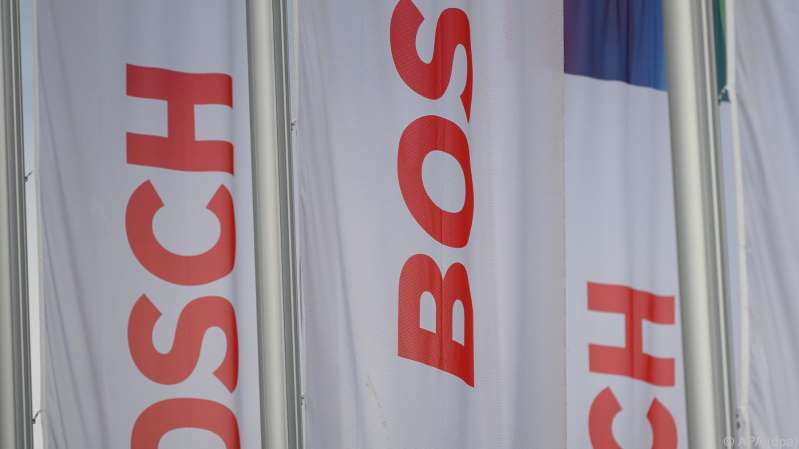The technology group, which specializes in supplies, is troubled by the volatile situation in the automotive industry.

Declining car production and corona lockdowns around the world brought the technology group Bosch a significant drop in sales last year. According to preliminary figures, revenues fell from 2019 to 2020 on a comparable basis by 6.1 percent to only 71.6 billion euros, as the group from Gerlingen near Stuttgart announced on Thursday.
However, the packaging technology division, which Bosch sold at the end of 2019, is missing from the previous year's figure. If the revenues generated in this segment at that time are included in the comparison calculation, the percentage drop in sales is even more drastic.
Earnings before interest and taxes also fell significantly to just 1.9 billion euros. In 2019, Bosch had – including special income from the sale of the packaging technology division – achieved an operating profit of 3.2 billion euros. The company did not provide any information on the net result.
For the current year, Bosch did not want to make any forecasts about sales or earnings and justified this with “still volatile framework conditions”. CEO Volkmar Denner said that there was “no question of relaxation” not only because of the corona pandemic.
On top of that, the ongoing decline in global car production and the structural change in the industry towards new drive technologies make planning difficult for the world's largest automotive supplier; Currently, a bottleneck in the semiconductor market is also causing problems.
When it comes to powertrains, Bosch is continuing to rely on a hybrid business model, building on diesel and gasoline technology, which has in some cases fallen into disrepute politically and publicly, as well as on e-mobility and hydrogen. Denner advocated considering economic, ecological and social aspects equally in this question.
However, he is currently observing “a one-sided emphasis on the ecological aspect” – combined with the assumption that a quick switch to modern drives is economically viable. “This hypothesis urgently needs to be tested.” At Bosch alone, around 40,000 of the 394,500 jobs worldwide still depend on diesel.
In the previous year, the group posted declines in sales in almost all of its major corporate divisions – only the consumer goods business grew. The most painful slump occurred in the most important area by far, Mobility Solutions, the subcontracting division for the automotive industry. In the segment, which accounts for more than half of the Bosch Group's total sales, sales fell by a whopping 9.5 percent to 42.3 billion euros.
Chief Financial Officer Stefan Asenkerschbaumer justified this slump mainly with the economic turmoil at the beginning of the corona pandemic in spring, when important supply chains in the auto industry were broken and the production of the car manufacturers partially came to a standstill.
At the time, Bosch responded to the unexpected crisis with short-time working and reduced working hours for thousands of employees, as well as cost savings. Asenkerschbaumer said, investment cuts alone saved more than 1.1 billion euros in liquid funds in 2020 compared to the previous year. Securing liquidity was a “very central issue” during the crisis. He rejected allegations that Bosch had saved on future technologies.
Deferred investments
“Not a single euro” that is important for securing the future has been deleted. “But of course there are always investments in a large corporation that can be pushed without any negative influences on the future. And we have done that.”
The situation improved significantly in the second half of the year, with Bosch benefiting more than average from the rapid economic recovery in the Far East, as did many car manufacturers: for the year as a whole, sales in China even exceeded sales in Germany for the first time in the company's history.
Bosch sees a profitable future market in the development of software-intensive electronic systems for vehicles – to this end, the group has brought together 17,000 employees in 20 countries in a new business segment under the umbrella of the Mobility Solutions division.
Denner said that this market already has an annual volume of around 20 billion euros and that an annual growth of up to 15 percent is expected by 2030. In the second half of 2020 alone, Bosch received orders worth more than 2.5 billion euros in this area.

